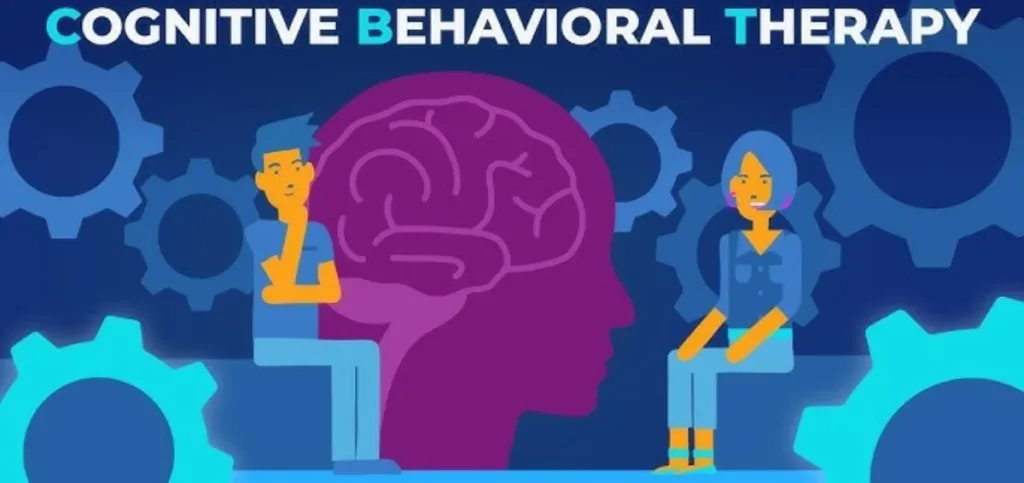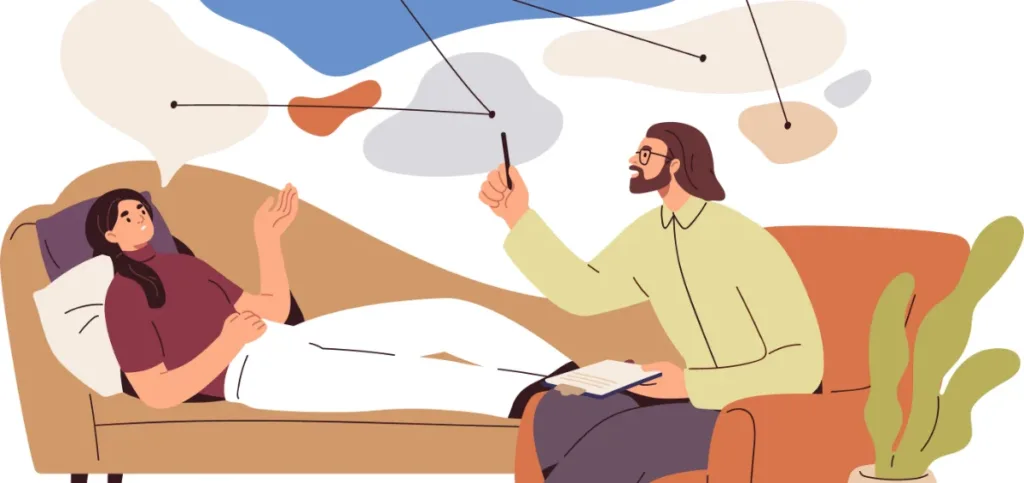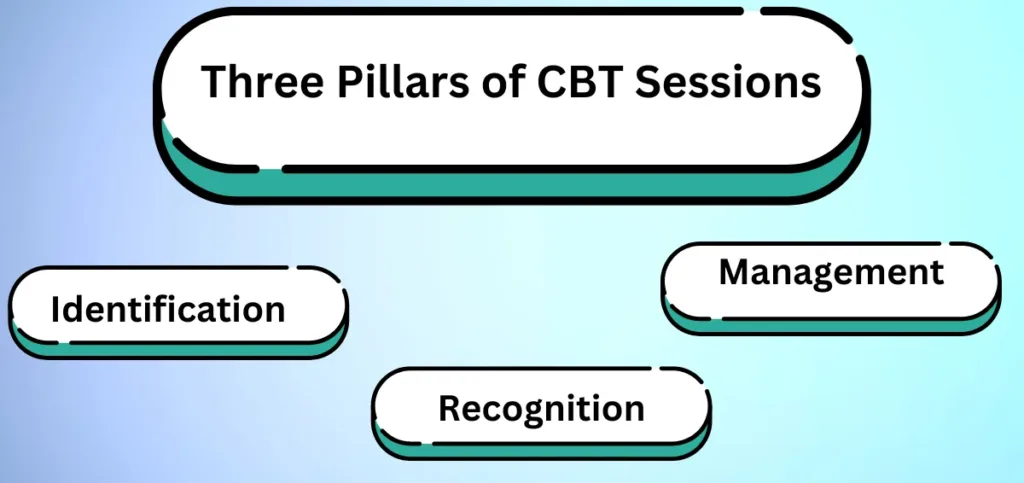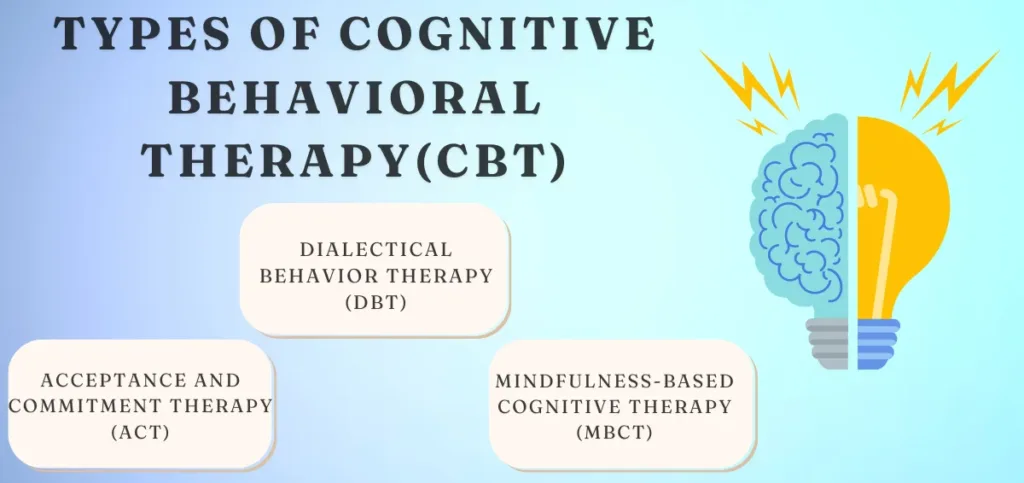
Today, more than ever, people experience mental health issues, such as depression and anxiety. Cognitive behavioral therapy (CBT) is one of the most widely used forms of psychotherapy to help them manage their condition.
CBT is regarded as the ‘gold standard of psychotherapy.’ This isn’t without reason. Talk therapy, as it is also called, focuses on changing existing thought patterns. When you change how you think, you can positively change your life.
Which principle underlies cognitive therapy? The underlying principle behind CBT is that our thoughts (cognition) significantly affect our emotions (feelings), ultimately influencing our behavior. This principle highlights how negative or irrational thought patterns can lead to emotional distress and maladaptive behaviors. Let us find out more about it below.
Must Read: Who is Not a Good Candidate for Ketamine Infusion Therapy?
What is CBT and How Does It Work?

Cognitive behavior therapy is psychotherapy focused on treating a range of emotional and mental health issues. These include anxiety, depression, obsessive-compulsive disorder (OCD), eating disorders, substance use disorders, and more. It was developed in the 1960s by Dr. Aaron Beck, who found out through experiments that people with mental health problems think differently than those without. He concluded that by changing our thoughts, we could positively impact our behavior and emotions.
CBT strategies help patients identify unhelpful thoughts and question them. They also show these individuals how their thinking impacts their mood and actions and how to think less negatively.
CBT breaks down problems into five main components. These include:
- Situations
- Thoughts
- Emotions
- Physical feelings
- Actions
It is based on the idea that these areas are interconnected and influence each other. An individual’s thoughts about a situation affect how they feel emotionally and physically.
For example, you had a bad breakup with your long-term partner. This may lead you to feel hopeless and sad about your future. CBT specialist will help you identify this thought pattern. They will encourage you to question their validity by analyzing them closely. This, in turn, will help you better understand the connection between your thinking and your actions. The specialist will also tell you how to deal with such thoughts so you can, over some time, successfully move away from them.
The Principle That Underlies Cognitive Behavioral Therapy

By now, you should have a better understanding of CBT. The underlying principle behind this talk therapy is that our thoughts, feelings, and behaviors are all connected and influence each other. It is also based on the concept that our emotions and actions are heavily influenced by how we perceive an event instead of the actual event.
This means that we can react negatively to situations due to the negative way in which we think about them. Our reaction causes us to feel more negative emotions, which, in turn, leads to negative actions. A simple example is feeling nervous and anxious before a job interview. This anxiety causes us to think about negative scenarios, such as not being selected for the role. These thoughts, in turn, create feelings of anxiousness, which causes an increase in heart rate and sweating. These feelings can lead the person to avoid attending the interview.
A CBT specialist makes the person aware of these thought patterns and replaces them with positive and realistic ones. Thus, CBT helps with managing emotions effectively, which in turn translates to positive behaviors.
Three Pillars of CBT Sessions

The three pillars of CBT guide therapy sessions. They help the patient become more aware of their thoughts and their impact on their behaviors.
Identification
The first pillar is identifying or becoming aware of your thoughts, feelings, actions, or behavior. These are the things that turn negative, pushing you further into your mental health problem. CBT helps the individual identify these and become aware of which thoughts, feelings, and behaviors are negatively influencing their life.
Recognition
There is a thin line between identification and recognition. Identification becomes having a general understanding of the problem. Recognition is the moment when you have become aware enough to realize that you are having a negative thought the moment it occurs. In this stage, you stop the negative thought, preventing it from influencing your behavior or feelings further. Then, you replace it with another positive thought.
Management
Management involves applying the self-help strategies learned during the CBT session to change your current situation. The CBT specialist gives you many tools, resources, and techniques to manage your thoughts and emotions when you are alone. You should use them to correct your negative thinking whenever it occurs so you can take better actions.
Three Types of Cognitive Behavioral Therapy

CBT has proven effective in helping people with mental health problems. This has led to the development of specialized types of this therapy.
Mindfulness-based Cognitive Therapy (MBCT)
MBCT combines conventional CBT with mindfulness practices like meditation. It allows patients to ground themselves in the present moment and be less reactive to situations.
MBCT has proven its efficacy in helping patients experiencing anxiety and depression. It is also used extensively on patients with bipolar disorder.
Dialectical Behavior Therapy (DBT)
DBT is beneficial for people with severe mental health conditions. These people see the situations as being very good or very bad. If they view situations as negative, they behave in an extreme manner, going further into their disorder.
DBT sessions help the patient hold multiple perspectives at once, reducing their tendency to view situations as black and white. The therapy focuses on helping patients acquire a degree of acceptance for their present situation and avoid impulsive reactions.
DBT has proven effective in treating substance abuse, borderline personality disorder, and bipolar disorder. It also helps those with ADHD, eating disorders, and post-traumatic stress disorder.
Acceptance and Commitment Therapy (ACT)
ACT is based on positive reinforcement. It focuses on changing how the patient usually reacts to their thoughts and emotions. This type of CBT is suitable for those who deny or avoid experiencing certain emotions. For them, such thoughts and emotions act as a block. Every time they avoid facing it, the hold of these emotions and thought patterns on them increases.
ACT helps them realize what they are doing. It gives them the tools and strategies to acknowledge and feel the emotions instead of resisting them. This, in turn, makes patients accept their situation and spend their energy on making meaningful changes.
ACT is mainly used to help people cope with depression, social anxiety disorder, psychosis, and OCD. It also helps with reducing anxiety, substance abuse, and addiction.
Read Also: Does Ketamine Therapy Make You High?
Summing Up
Cognitive behavioral therapy is a versatile treatment for a range of maladaptive behaviors. It starts showing positive results on patients quickly, helping them overcome their long-standing challenges. If you feel that you or your loved one is experiencing a mental health condition, contacting a professional in this field and asking about this therapy might be the right step. CBT techniques will help you learn the cause of your distressing thoughts. With the help of the right tools and guidance, you’ll be able to identify and change how you think and respond to situations. This will positively affect your mental health, which in turn will contribute to your overall well-being.










